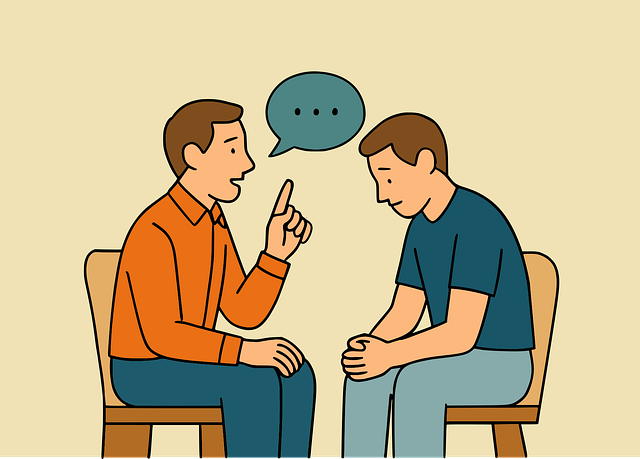Relationship counselling is a transformative process for couples seeking to overcome communication barriers, resolve conflicts, and strengthen their emotional bonds. By addressing underlying attachment styles, past traumas, and cultural differences, therapists facilitate positive change. Using evidence-based strategies like active listening, I-messages, Emotionally Focused Therapy (EFT), mindfulness exercises, and couples' coaching, counsellors empower partners to improve communication, empathy, conflict resolution, and intimacy. Regular check-ins ensure sustained growth, reinforcement of positive changes, and long-term relationship health. Relationship counselling provides the tools and guidance needed for couples to build resilience, deepen connections, and cultivate lasting bonds.
Looking to fortify your connection? Discover evidence-based interventions proven to transform couples’ lives. This comprehensive guide explores the intricate dynamics of relationships, addressing common challenges that can arise over time. From enhancing communication through effective strategies to rebuilding intimacy and fostering long-term growth, these methods offer a roadmap for healthier, happier unions. Dive into this essential resource for powerful tools and insights from relationship counselling experts.
- Understanding Relationship Dynamics and Common Challenges
- Evidence-Based Interventions for Effective Communication
- Strategies to Rebuild Connection and Intimacy
- Long-Term Relationship Maintenance and Growth
Understanding Relationship Dynamics and Common Challenges

In the realm of relationship counselling, understanding the intricate dynamics between partners is paramount. Every couple navigates their own unique journey, but common challenges often emerge, such as communication breakdowns, conflict resolution issues, and unmet emotional needs. These problems can stem from various factors, including differing attachment styles, past traumas, or even cultural differences. Recognizing these dynamics is the first step towards meaningful change; therapists must help couples identify patterns and triggers to address them effectively.
By delving into these complexities, relationship counselling intervenes at the heart of the matter. It equips partners with valuable tools to enhance communication, foster empathy, and develop healthier ways of managing conflicts. Through evidence-based strategies tailored to individual needs, couples can navigate their challenges, strengthen their bond, and cultivate a more satisfying and resilient relationship.
Evidence-Based Interventions for Effective Communication

Effective communication is a cornerstone of healthy relationships, and evidence-based interventions play a pivotal role in teaching couples how to navigate conversations constructively. Relationship counselling often incorporates techniques like active listening, where both partners focus on understanding each other’s perspectives and feelings, fostering an environment of empathy and trust. This simple yet powerful tool can significantly improve conflict resolution and overall satisfaction.
Additionally, structured communication models, such as the “I-Message” technique, guide couples to express their needs and emotions without blame or criticism. By learning these evidence-based methods, individuals in relationships gain valuable skills to manage disagreements, promote understanding, and strengthen their bond. Relationship counselling thus equips couples with tools to communicate more openly and effectively, laying the groundwork for a deeper connection and improved relationship dynamics.
Strategies to Rebuild Connection and Intimacy

In many cases, rebuilding connection and intimacy in a couple requires strategic interventions aimed at fostering open communication and creating safe spaces for emotional expression. Relationship counselling often incorporates evidence-based techniques like Emotionally Focused Therapy (EFT), which helps partners improve their connection by prioritizing each other’s emotional needs. EFT encourages couples to explore and share their feelings, validate one another’s experiences, and work together to resolve conflicts constructively.
Additionally, practices such as mindfulness and couples’ coaching can be instrumental in reigniting intimacy. Mindfulness exercises promote present-moment awareness, enabling partners to better understand and appreciate each other’s perspectives. Couples’ coaching facilitates deep conversations about desires, fears, and expectations, fostering a shared understanding and strengthening the bond between them. These strategies, when implemented with commitment and support from a trained relationship counsellor, offer powerful tools for couples seeking to rejuvenate their connection and intimacy.
Long-Term Relationship Maintenance and Growth

Maintaining a healthy and thriving relationship over the long term requires consistent effort and commitment from both partners. Relationship counselling plays a pivotal role in this journey by equipping couples with evidence-based strategies to navigate challenges and foster growth. Through structured interventions, counsellors help partners improve communication, resolve conflicts constructively, and rebuild intimacy.
Regular check-ins and follow-up sessions ensure that relationships remain robust. These ongoing interactions allow for the reassessment of goals, addressing emerging issues, and reinforcing positive changes. By integrating evidence-based practices into their lives, couples can enhance their connection, build resilience, and continue to grow together, creating a lasting bond.
Relationship counselling offers a structured approach to addressing common challenges within couples’ dynamics. By employing evidence-based interventions, such as improving communication skills and rebuilding emotional connection, partners can enhance their intimacy and strengthen their bond. These strategies not only help resolve current issues but also lay the foundation for long-term relationship maintenance and growth. Through dedicated effort and professional guidance, couples can transform their relationships, fostering a deeper understanding and lasting happiness.



